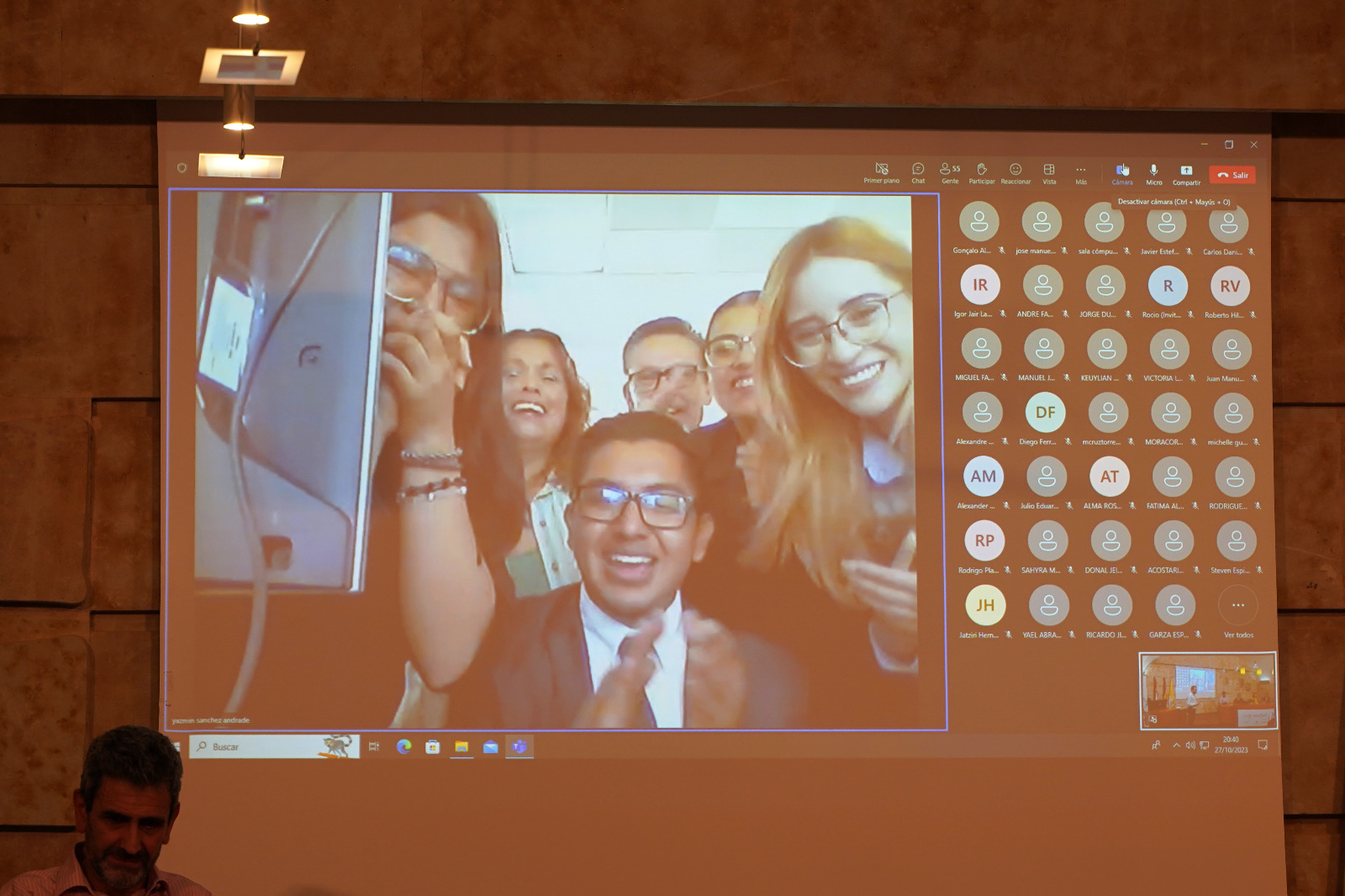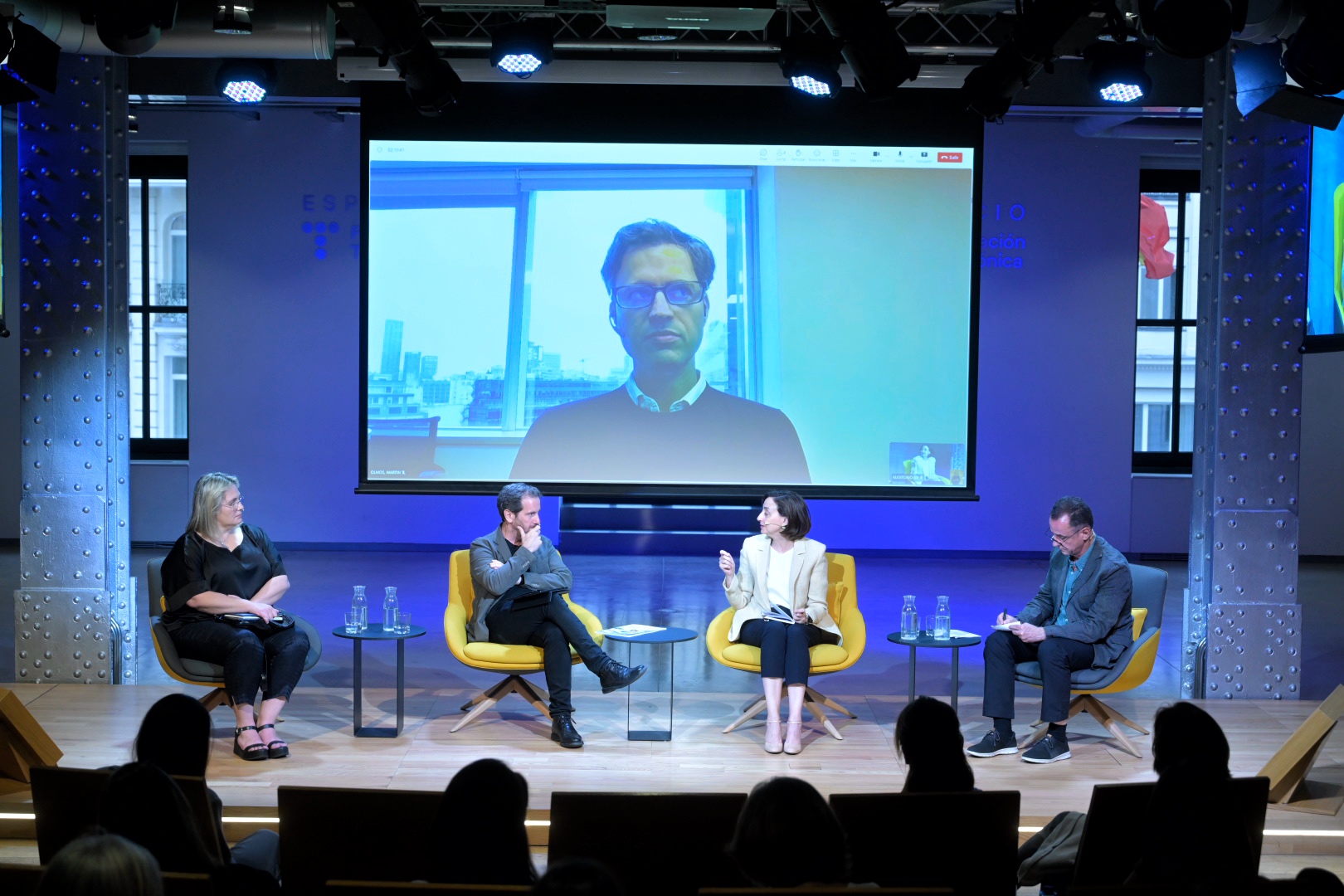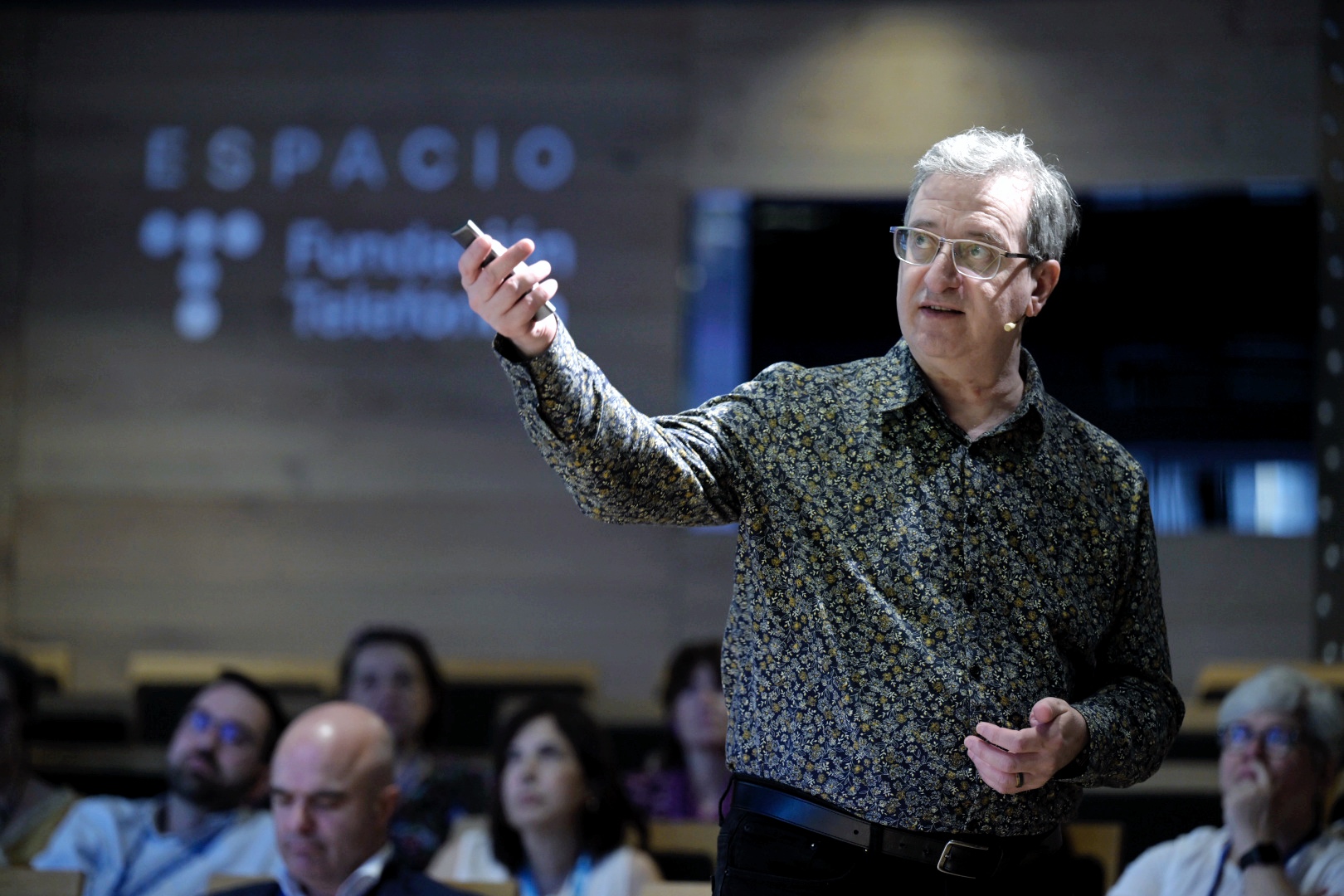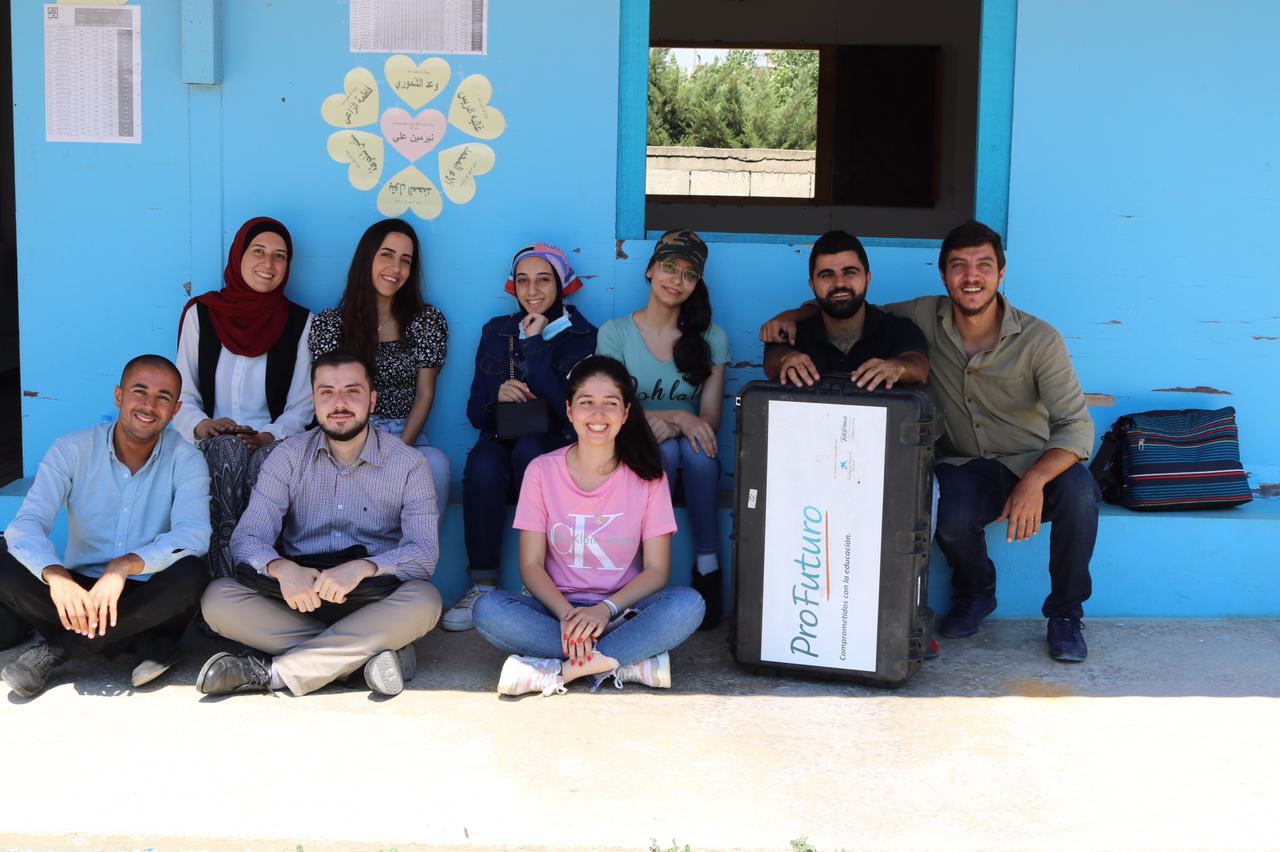“If you have the opportunity, join in! For the learning, the social relations with colleagues, the fellowship, the good vibes… I really liked it; I will come back next year”, this is how the hackers’ presentations started on the fourth and last day of the hackathon, with this phrase that sums up the spirit of #hack4edu, the initiative promoted by ProFuturo and the Universidad Pontificia de Salamanca (UPSA), in collaboration with the Telefónica Chairs Network, and whose third edition took place between 24th and 27th October.
Different apps where emotion detection during learning has a positive impact on the motivation and concerns of the students, a collaborative encyclopaedia with AI that offers the most accurate answers possible according to the user who is looking for them, or support for teachers based on student performance reports generated by AI. These are just some of the solutions that have emerged from this hackathon thanks to the use of AI, P2P platforms, gamification, abp methodology (project-based learning), neural network development and robotics. It was the result of the work of 534 hackers and 30 universities in their resolution of up to 61 technological challenges related to digital education in vulnerable environments, in a hybrid and simultaneous way with multidisciplinary and hybrid teams from 10 countries: Argentina, Brazil, Colombia, Spain, Mexico, Panama, Peru, Portugal, Dominican Republic and Uruguay.
Winning Projects
The winning projects have been divided into two categories (Innovative and Senior), with three winners in each category, as well as a scholarship.
Innovative Category
- The first prize for the innovation category went to the solution Personalised inductive learning based on emotion recognition with AI support, from the Universidad Mexiquense del Bicentenario (Mexico). They have designed a platform that supports the recognition of aspects that facilitate learning in children, identifying what they like through gestures and being able to make decisions, thanks to a system based on AI and facial recognition.
- The second innovative project is PeerExplain from the Polytechnic Institute of Viseu (Portugal). It is a P2P platform, which we could refer to as a collaborative encyclopaedia with AI, and allows you to post and receive answers from other users, with the singularity that, instead of simply searching for answers, the system focuses on providing the most appropriate explanation for the user’s profile using AI.
- The third prize in the innovative category goes to Gamification, abp methodology – project-based learning – and development of neural networks to stimulate and improve academic and inclusive performance, from the Instituto Federal Catarinense (Brazil). It is an educational application that provides support to teachers through student performance reports, seeking an inclusive environment, and personalised for them with AI tools. With multi-device compatibility and different operating systems, the teacher will be able to create tasks, where the neural network will learn from the answers. It will also have an API with ChatGPT to offer content creation.
Senior Projects
- The first prize in the Senior category went to La píldora de Leire, by Factoría F5 (Spain), an interactive study app that, thanks to AI, revolutionises the way students learn and relate to the educational process. The app itself learns from the student’s interactions, adapting to their profile, emotions and learning needs. It also provides answers to their concerns. With a classification machine learning model from the outset, the system will determine its predominant learning style.
The high quality of the proposals presented in this 4th edition of #hack4edu has forced us to divide the second prize in the Senior category between two winners.
- One is Leaders4Edu, from UPSA (Spain), which focuses on identifying teacher leaders and transformers who can catalyse significant change not only in education but also in their communities. Such teachers must be able to incorporate innovative pedagogical methodologies and adapt to the changing needs of students, within a framework of inclusiveness and community participation. For its development, data from the ProFuturo teacher self-assessment tool, which uses Moodle, have been analysed, developing a dashboard that applies different clustering algorithms, and which allows leading teachers to be identified, as well as being able to position them at different levels of aggregation and geographical visualisation.
- The other second Senior is Jukunaka – AI-Powered Multilingual Educational Access, from the Technological University of Panama (Panama). The project is a creation of e-courses and an educational platform capable of addressing cultural and linguistic diversity in the educational environment. The aim is to develop solutions that offer educational content in multiple local languages and are sensitive to cultural differences, promoting equitable and enriching access to education for communities in developing countries. The project has sought to promote inclusion and intercultural understanding in education, thus contributing to the empowerment of students from different cultural and linguistic backgrounds.
Scholarship for the UPSA’s Own Title of Expert in Big Data
- The Set de Robótica Eco-Educativa (ECORA) project of the Technological University of Panama (Panama) has obtained free enrolment in the UPSA’s own Big Data Expert Degree with its proposal to bring robotics to schools at the lowest possible cost. To this end, it proposes to build a robotics kit using accessible materials found in the school itself and incorporating low-cost sensor and camera technology. The aim is to develop a very affordable kit that can be implemented in all schools in disadvantaged countries, thus democratising access to STEM education and fostering interactive learning in an inclusive environment.
Publication of research articles
In addition to the category prizes, all universities have been awarded with the possibility of publishing their research articles.
#hack4edu has awarded some of the projects, hackers and universities, but they are all winners because of the learning they have gained and the motivation that will push them in their professional careers, but above all to be better people by contributing their bit to a social cause, as several participants have commented:
Other hack4edu news:
- The 4th #hack4edu is coming: The international hackathon on digital education and Artificial Intelligence promoted by ProFuturo
- Presentation of the fourth hack4edu: the international hackathon on digital education and Artificial Intelligence
- ProFuturo invites you to improve education by proposing challenges with AI at #hack4edu
- International hackathon #hack4edu kicks off: an opportunity to transform digital education through artificial intelligence
The moment is coming!
Are you going to miss out on this opportunity?
Further information available at: https://profuturo.education/hack4edu/
X: @ProFuturo_
IG: @profuturo_
YT: ProFuturo






